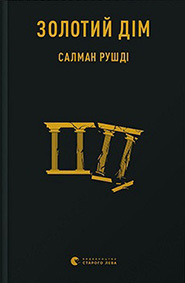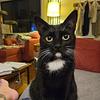You need to sign in or sign up before continuing.
Take a photo of a barcode or cover
This is very now — very contemporary. It explores America leading up to 45’s election and touches on issues like gun control, misogyny, mental health, and transgender rights while telling the story of a corrupt man and his three sons. Rushdie throws in countless allusions to classic films, poets, novels, and DC Comics. He uses the narcissistic, insane, and anarchic Joker as a stand in for 45 which works quite well.
It will be interesting to return to this in 20 years or so and see how it works. It is so very contemporary that I’m not sure it will have the same impact once we’ve moved out of this moment.
It will be interesting to return to this in 20 years or so and see how it works. It is so very contemporary that I’m not sure it will have the same impact once we’ve moved out of this moment.
This book is a depressing allegory for our time, although that doesn’t really become apparent until one is about 200 pages in. Published in 2017, one wonders how Rushdie managed to distill the essence of the times we live in and reproduce it so quickly in the form of a novel. The writing is dense and packed with allusions, so much so that the arc of the story is difficult to follow at first. I bring it down to four stars because several of my fellow reading group friends confessed they just couldn’t get through it.
I'm not sure how to rate this book the first third had be thinking you need a PHD in world literature to understand all the references. I have a pretty broad background but know I missed many but then the book changed to being more pop culture references that were easy to get. The story didn't really move me and I never really got into any of the characters so it was a slog to get though the whole book. This is the only book of Rushdie's that I have read/listen to so I have Midnight's Children, which many sources said was his best, on hold to see if I like that.
Rushdie in the vein of shalimar the clown. Good not great.
Abandoned. I just can't get on board with Rushdie's writing style. There's a frustrating arrogance to the narrator character. Also the repeated, overt 'tease' that 'so many terrible secrets about the people I'm telling you about will be revealed to you soon' just grated me...
an amazing work of literature. I love how he weaves the fiction of his book with the nonfiction of the current political climate.
This book is extremely hard for me to review or even to synopsize. It took me forever to finish as I felt it started slowly, but the middle was very interesting, and then the end had this odd chapter of just info dump which I'm not sure was necessary. Overall, the characters were interesting but not likeable, the foreshadowing became repetitive and annoying, and it read like a Greek tragedy. However, much of the writing was fascinating and unique, the political commentary was brilliant (mostly the parts about the most recent American election), and the social commentary and exploration of current social themes was educational and thought-provoking. So, a mixed bag. My first Rushdie (amazingly enough) and I am sure I'll go and read some more.
Wow. What a compelling read! I couldn't put it down! The narrator at times came across as slightly unreliable, but he came clean about his own faults and came to realize his own bias in the end. His telling of the story of the Golden family is poetic, poignant, and precise. The character descriptions are gripping and leave you begging for more, in the best way possible. The story itself is so complex with millions of little layers and connections that are weaved together so delicately and intricately that it's surprising that our narrator was able to keep everything straight! The text itself is pretty dense, but so nicely written that it feels like it's going fast, even in those pretty moments of stillness that Rushdie is a master of. The political background is so well done, and hilarious in just the right spots. A great read for anyone looking for something challenging. Highly recommended from this reader!
Too much hyperbole. Too much exposition. Too much erudition. Lovely critique of Trump and how we found ourselves in this shituation.





